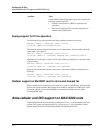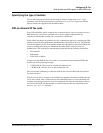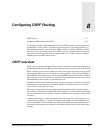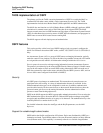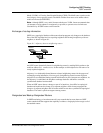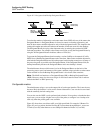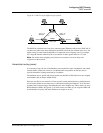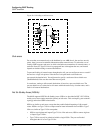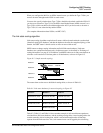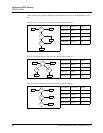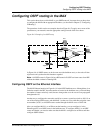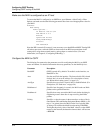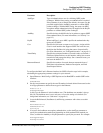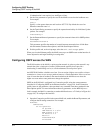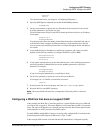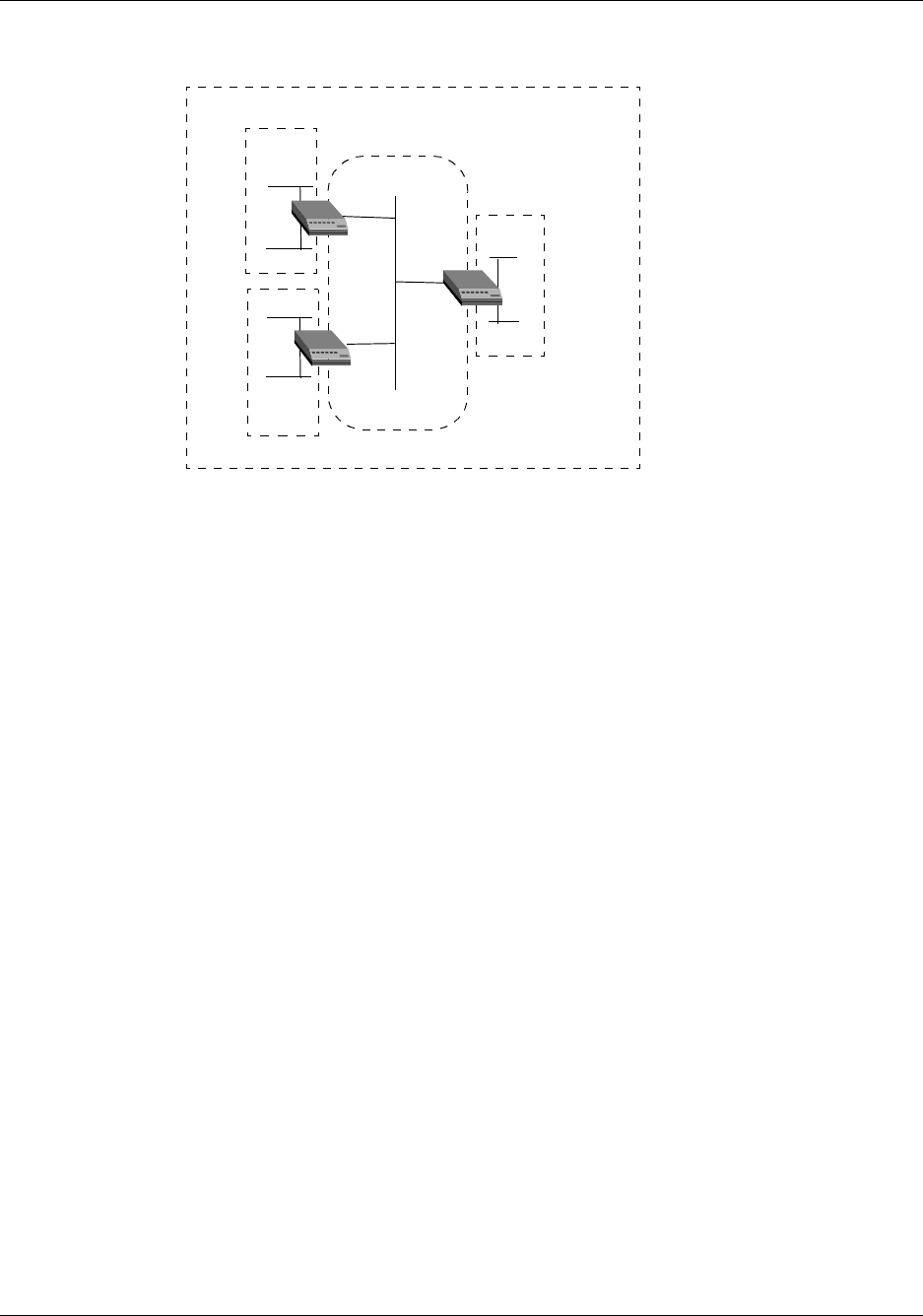
8-6 MAX 6000/3000 Network Configuration Guide
Configuring OSPF Routing
OSPF overview
Figure 8-4. Dividing an AS into areas
Stub areas
For areas that are connected only to the backbone by one ABR (that is, the area has one exit
point), there is no need to maintain information about external routes. To reduce the cost of
routing, OSPF supports stub areas, in which a default route summarizes all external routes. A
stub area allows no Type-5 LSAs to be propagated into or throughout the area, and instead
depends on default routing to external destinations.
To prevent flooding of external routes throughout the AS, you can configure an area as a stub if
the area has a single exit point or if the choice of exit point need not be made on a
per-external-destination basis. You might need to specify a stub area with no default cost
(StubNoDefault) if the area has more than one exit point.
In a stub area, routing to AS-external destinations is based on a per-area default cost. The
per-area default cost is advertised to all routers within the stub area by a border router, and is
used for all external destinations.
Not So Stubby Areas (NSSAs)
The MAX supports OSPF Not So Stubby Areas (NSSAs) as described in RFC 1587. NSSAs
enable you to treat complex networks similarly to stub areas. This can simplify your network’s
topology and reduce OSPF-related traffic.
NSSAs are similar to stub areas, except that they enable limited importing of AS-external
routes. NSSAs use Type-7 LSAs to import external route information into an NSSA. Type-7
LSAs are similar to Type-5 LSAs except that:
• NSSAs can originate and import Type-7 LSAs. Like stub areas, NSSAs cannot originate
or import Type-5 LSAs.
• Type-7 LSAs can only be advertised within a single NSSA. They are not flooded
throughout the AS as are Type-5 LSAs.
Area 1
ABR
Area 3
ABR
Backbone
Area
Area 2
ABR



